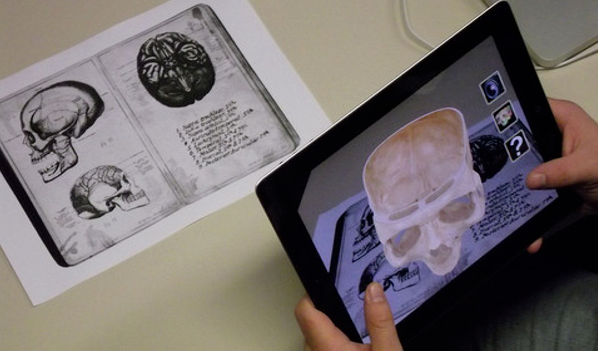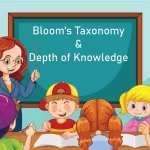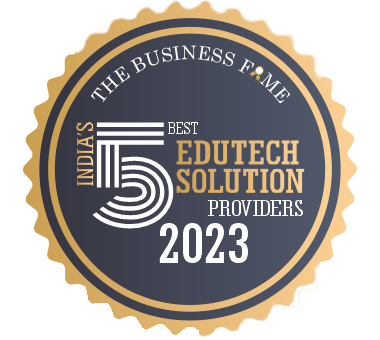Augmented Reality is cutting-edge technology that inserts elements from the virtual world into the real one. Various studies relating to the use of AR technology in learning (link below) report that using Augmented Reality as an ancillary tool for learning enhances learner engagement. Additionally, it helps learners gain a better understanding of information compared to the traditional brick and mortar schooling, which often focuses more on memorization and rote. Thus, the inherent concept of Augmented Learning appeals to young learners.
Augmented Learning does away with a big chunk of descriptive text. Instead, the learners confirm their observations with the help of visual aids, which are better for knowledge and information retention. Moreover, learning can be directed toward gathering facts without much difficulty and applying learning in real-time rather than reading and memorizing content.
The first requisite to employing Augmented Learning in your classroom is to ensure that every student has a smartphone/tablet with a functioning camera. Thanks to the ubiquitous nature of technology, smartphones are not too difficult for students to have. Chances are that your students already have one at home. For the ones who don’t, their inexpensive nature has made procuring smartphones an easy task.
Implement Augmented Learning in Your Class
There are a variety of Augmented Reality tools that are already available on the internet. These tools help create learning content that is both exciting and informational.
- Educators can easily add speech bubbles, characters, Snapchat-like filters, open-ended and multiple-choice questions and also embed YouTube videos when creating their own AR experience for students.
- Employ creative digital puzzle boxes! Several AR-related tools are available on the internet to offer learning activities for students in the form of puzzles. For example, Breakout EDU.
- Create customized markers. Augmented Reality markers, or AR-markers, are visual cues that trigger a certain virtual response. Using various tools available on the internet, teachers can conveniently make their custom AR markers. There are already several custom-made markers available online. These custom markers ensure that Augmented Learning is directly linked to the content of the lesson.
- Go on an Augmented Journey! AR experiences can also be placed at physical locations through the use of GPS coordinates. Teachers can add layers of learning and interaction in a day outing. They can also assign points to places of interest, which the student can collect by visiting.
- Encourage Students to Create. Some platforms, such as the Metaverse AR Platform, do not require any coding to create AR experiences. So, students can make use of these resources to demonstrate learning in a single class. Moreover, they can share the final product with friends and family outside the classroom.
Aurasma and Layar are two apps that employ Augmented Reality for education and are easy to set up. Using the Aurasma app, one can link AR triggers with online content that may include a static image, site content, et al.
Limitations of Augmented Learning
- The dependence of Augmented Learning on technology is its Achilles heel. Any student who wishes to experience Augmented Learning, or any educator who is thinking of using Augmented Learning as a learning tool in class, must have unfettered access to smartphones or tablets. Consequently, the experience of Augmented Learning depends on the performance of the device in use. This can soon become frustrating if the technology does not function as expected.
- There is a learning curve involved with developing your own, original AL content. Although there are a plethora of tools available on the internet that will help you develop the kind of AL content you are looking for, expect to put in the time and effort to get a hang of it. You don’t have to be tech-savvy, but creating original AL content does require a few key skills that involve practice.
Teaching in institutions dominated by the Gen Alpha is not the same as the olden times. In a classroom filled with young tech-savvy freaks, who perhaps are exposed to technology more than the teachers, it is almost inevitable and unthoughtful to employ teaching methodologies and strategies that are not influenced by technology. Over the years, Augmented Reality has inadvertently become the most useful resource to aid learning. Blended Learning has been yielding significantly exceptional results in educating children and transforming them into resourceful thinking individuals. Augmented Reality has not just aided the academic front but also contributed to the holistic development of learners. Therefore, it would not be an exaggeration to say that AR is indeed the key to a developed and prosperous future, both economically and socially.
Visit out blog for further reading about learning techniques and teaching methodologies. Create.Engage.Inspire

















